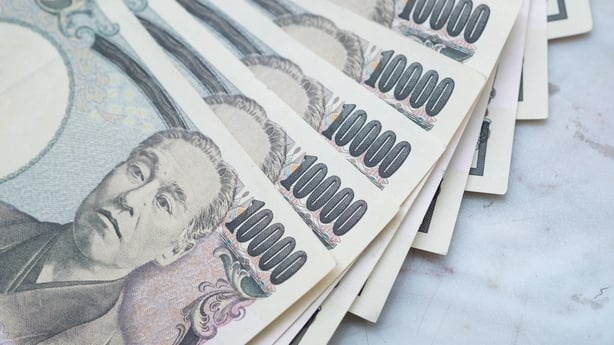The Bank of Japan has today maintained ultra-low interest rates, defying market expectations it would phase out its massive stimulus programme in the wake of rising inflationary pressure.
The surprise decision sent the yen skidding against other currencies and bond yields tumbling the most in decades.
Investors unwound bets they made anticipating the central bank would overhaul its yield control policy.
Instead of overhauling its stimulus programme, the Bank of Japan crafted a new weapon to prevent long-term rates from rising too much.
Some analysts took this move as a sign Governor Haruhiko Kuroda will hold off on making big policy shifts during his term that ends in April.
At a two-day policy meeting, the Bank of Japan kept intact its yield curve control (YCC) targets, set at -0.1% for short-term interest rates and around 0% for the 10-year yield, by a unanimous vote.
The central bank also made no change to its guidance that allows the 10-year bond yield to move 50 basis points either side of its 0% target.
Underscoring its resolve to keep defending the cap, the bank beefed up a key market operation tool to more effectively curb rises in long-term interest rates.
Kuroda's last policy meeting will be held on March 9-10, ending a decade at the helm of the bank that brought about radical monetary stimulus.
The decision follows the bank's surprise move last month to double the yield band, a tweak that analysts say has failed to correct market distortions caused by its heavy bond buying.
Since December's action, the Bank of Japan has faced the biggest test to its YCC policy since its introduction in 2016 as rising inflation and the prospects of higher wages gave traders an excuse to attack the central bank's yield cap with aggressive bond selling.
Kuroda has repeatedly said the bank was in no rush to dial back stimulus, let alone raise interest rates, until wages rise enough to boost household income and consumption, allowing firms to lift prices.
In a quarterly report released today, the Bank of Japan raised its core consumer inflation forecast for the current fiscal year ending in March to 3%, from 2.9% projected in October.

It also revised up the inflation forecast for the fiscal year ending March 2024 to 1.8%, from 1.6% seen three months ago.
But the inflation forecast for fiscal 2023 was maintained at 1.6%, a sign the board is sticking to the view prices will moderate as the effect of past surges in raw material costs dissipate.
The Bank of Japan also slashed its economic growth projections for fiscal 2023 and 2024, amid worries slowing global growth will weigh on the export-reliant economy.
Japan's core consumer inflation has exceeded the bank's 2% target for eight months in a row, as companies raised prices to pass on higher raw material costs to households.
Data due out on Friday is likely to show inflation hit a fresh 41-year high of 4% in December, according to a Reuters poll, although analysts expect price growth to moderate later this year reflecting recent declines in global commodity prices.

